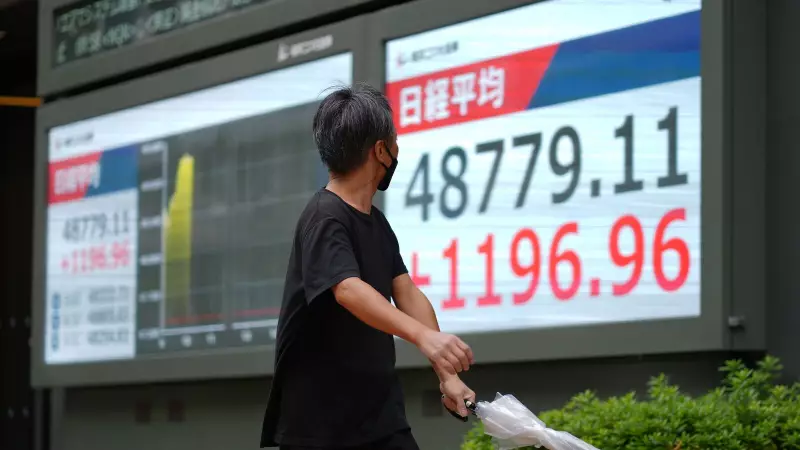
Asian financial markets experienced significant turbulence on Wednesday as major indices across the region reacted to political developments involving former US President Donald Trump and Japanese politician Sanae Takaichi.
Market Plunge Across Asia
Japan's benchmark Nikkei 225 index witnessed a sharp decline, falling nearly 1% during trading hours. The sell-off reflected investor concerns about potential geopolitical shifts and their impact on regional economic stability.
Similarly, South Korea's KOSPI index mirrored the downward trend, dropping approximately 1% as market participants digested the implications of the high-profile meeting. The synchronized decline across two of Asia's largest economies highlighted the sensitivity of regional markets to political developments.
Trump-Takaichi Meeting Sparks Concerns
The market reaction followed a significant meeting between Donald Trump and Sanae Takaichi, a prominent Japanese politician known for her conservative views and potential leadership ambitions. While specific details of their discussion remain undisclosed, investors interpreted the meeting as a potential signal of shifting political alliances that could affect international trade relations and economic policies.
Broader Asian Market Impact
The market volatility wasn't confined to Japan and South Korea alone. Other Asian markets showed varying degrees of sensitivity to the political developments:
- Japanese equities faced broad-based selling pressure
- South Korean technology and export-oriented stocks particularly affected
- Regional currency markets showed increased volatility
- Investors shifted toward safer assets amid uncertainty
Expert Analysis and Market Outlook
Financial analysts suggest the market reaction reflects deeper concerns about potential changes in international relations and trade policies. The timing of this market movement is particularly significant given the current global economic landscape and ongoing geopolitical tensions.
Market strategists are advising investors to maintain a cautious approach while monitoring political developments that could influence trade relations between Asian nations and their international partners. The coming days will be crucial in determining whether this represents a temporary correction or the beginning of a more sustained market adjustment.
As Asian markets continue to navigate these political crosscurrents, investors remain watchful for any further developments that could impact regional economic stability and international trade dynamics.





